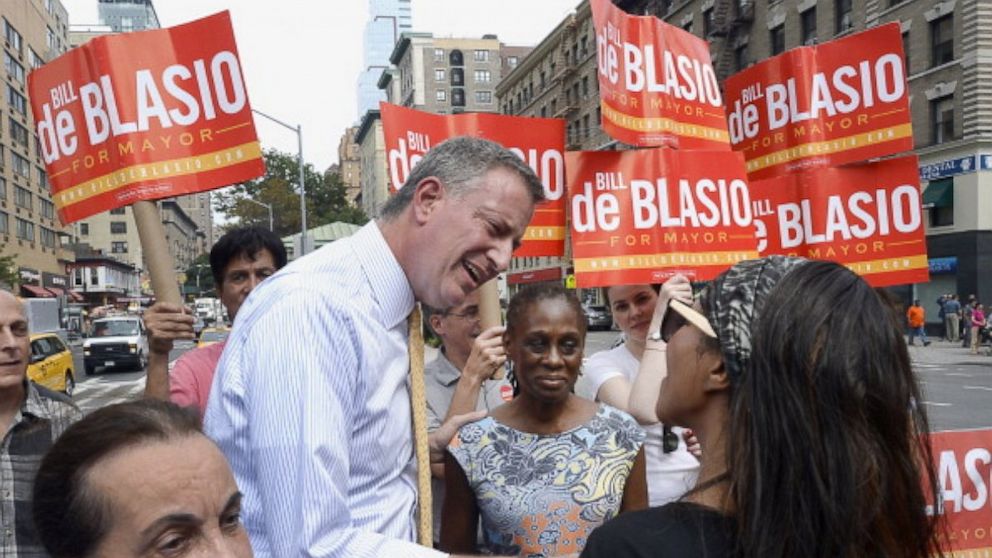Post-primaries, NYC Election Will Focus on Inequality, Social Reforms
Post-primaries, NYC Election Will Focus on Inequality, Social Reforms

Sept. 11, 2013— -- Somehow, amidst party crashers and fallen candidates flipping off cameras, votes were (mostly) counted in the New York City primary race last night, and the city more or less has its candidates for this year’s Nov. 5th election. But while everyone else is analyzing what demographics voted for which candidate, let’s take a look at what issues these campaigns will focus on through election day... and what impact they have on the city beyond the election.
The Mayoral Race
The mayoral race now stands between Democratic candidate Bill de Blasio (That's given that the official count or a recount doesn’t put his vote under 40 percent, which would call for an October runoff election. The final numbers won’t be announced for a week.) and Republican Joe Lhota. And while Democrats outnumber Republicans in the city 6 to 1, the city has not voted for a Democratic mayor since 1989, when David Dinkins took office. Whether that changes in November will largely depend on debates about inequality and "stop and frisk."
Brooklyn candidate de Blasio went from "That Dude Who’s Also Running" to frontrunner on arguably the most socially aggressive platform, a platform that most directly opposes the historical precedent of New York City Republican mayors.
De Blasio calls for reforms in income inequality, education and affordable housing. His platform includes an income tax on New Yorkers making more than $500,000 per year, which would be used to fund universal pre-K education and after-school middle school programs.
Most important, de Blasio calls for the end to "stop and frisk," the controversial NYPD practice in which police officers question and frisk pedestrians, the vast majority of which are Hispanic and African American, often without reasonable criminal suspicion. Throughout his campaign, de Blasio has repeatedly called for an end to the practice, a position that resonated emotionally for many voters and which arguably contributed to the candidate’s win last night.
In his victory speech, de Blasio emphasized that "stop and frisk" and inequality would continue to be a major issue through November. Referencing a speech he gave in January, de Blasio spoke about “a New York where nearly half our citizens live at or near the poverty line, where luxury condos had replaced community hospitals, where proactive policing had somehow slipped into racial profiling.”
In stark contrast, the former director of the MTA represents a carryover of the Giuliani administration (he served as deputy mayor for the former Mayor) and 20 years of Republican mayors in the city that stand for business investment and a strong police force. In his victory speech last night, Lhota defined how he differs from de Blasio’s views on inequality in the city, and what a crucial role that conversation will play through November.
“I hear an awful lot coming from the other side about the 'tale of two cities' and how they want to wear down the progress that’s happened over the last twenty year,” Lhota said. “This ‘tale’ is nothing more than class warfare. An attempt to divide the city."
Comptroller
While, thus far, the comptroller election has been the "Not Spitzer" race, the November election for comptroller, who will manage accounting and financial reporting in the city, is now down to Democratic candidate Scott Stringer and the Republican John Burnett in what appears to be a conversation about economic theory.




